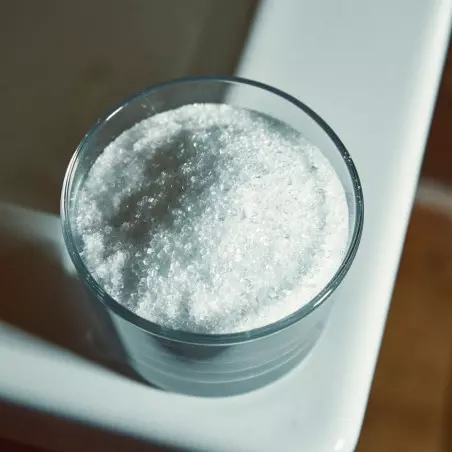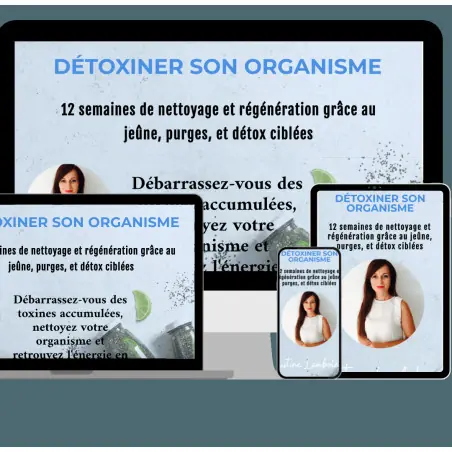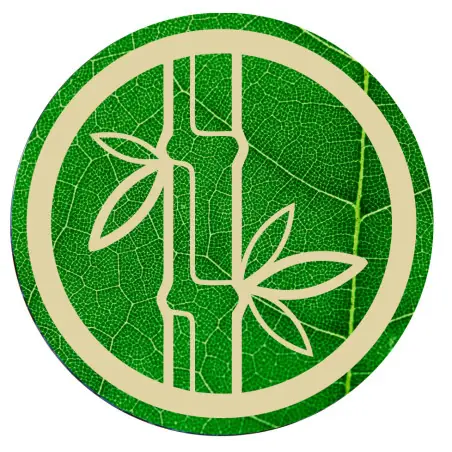The liver cleanse, or hepatic detox, is gaining increasing interest among natural health enthusiasts. In this article, we will explore liver cleansing methods, their potential benefits, and the precautions to take. You will discover how to naturally support the health of this vital organ, in line with the principles of living and organic food.
After reading this article, you will have:
- A clear understanding of what a liver detox is;
- Information on popular methods, including that of Andreas Moritz;
- Practical tips to support your liver health daily;
- A balanced perspective on the benefits and precautions to take.
What is liver detox?
Liver detox, often called liver cleansing, is a practice aimed at supporting and optimizing liver function, essential for the body's natural detoxification. As a central organ with vital functions, and one of the main organs of the human body, the liver plays a crucial role in filtering harmful substances, metabolizing nutrients, and ensuring the secretion of bile, which facilitates fat digestion. However, factors such as an unbalanced diet, exposure to toxins, or chronic stress can overload it, leading some people to seek ways to "cleanse" it.
For many, the interest in a liver cleanse lies in the belief that it can improve energy, lead to better digestion and thus better absorption of nutrients and greater mental clarity. Signs of a potentially overloaded liver include chronic fatigue, digestive disorders, and dull skin. Although the body is naturally equipped to detoxify itself, stimulating its cleansing process in a targeted manner can be beneficial, especially within the framework of a living and organic diet.
The essential functions of the liver
The liver, this vital organ, plays a central role in maintaining overall health thanks to its multiple functions. Among the most important, the detoxification of harmful substances is paramount. The liver filters and neutralizes toxins from food, medications, and the environment, making them easier for the body to eliminate.
Additionally, bile production is a key liver function. Bile, secreted by the liver, is essential for the digestion of fats. It helps break down dietary fats, thus facilitating their absorption in the small intestine. This process is crucial for the assimilation of fat-soluble vitamins such as vitamins A, D, E, and K.
Furthermore, the liver serves as a glucose reservoir. It stores glucose in the form of glycogen and releases it according to the body's energy needs, thus ensuring continuous regulation of blood sugar levels. This is particularly important for maintaining stable energy throughout the day.
A balanced, vibrant, and organic diet can offer additional support to these essential liver functions. By favoring raw foods rich in nutrients, you can help optimize your liver's performance. However, it is crucial to stay attentive to your body and consult a healthcare professional if you are considering significant changes in your diet or lifestyle.
Factors that can overload the liver
The liver, as the body's main detoxification organ, is constantly active in filtering and eliminating toxins. However, certain factors can overload it and compromise its efficiency. An unbalanced diet, rich in processed foods, saturated fats, and excessive sugars, greatly strains the liver. These foods can lead to an accumulation of fat in hepatocytes, disrupting metabolic functions.
Exposure to environmental toxins is another overload factor. Pollutants present in the air, water, or even some household products introduce harmful chemicals into the body that the liver must process. This also includes the excessive use of certain medications or alcohol consumption, which place additional stress on the detoxification capabilities of this organ.
Finally, chronic stress plays a significant role in liver overload. Stress releases hormones that can alter liver metabolism and increase the toxic load. Moreover, it is often associated with unhealthy lifestyle habits, such as lack of sleep and poor diet, further aggravating the situation.
To address these challenges, an integrative approach based on a vibrant and organic diet, combined with stress management techniques, can help support and revitalize liver function. By making wise dietary choices and reducing exposure to toxins, you can contribute to the well-being of your liver and, consequently, your overall health.

Popular Liver Cleansing Methods
For those looking to revitalize their liver naturally, several cleansing methods are available.
Andreas Moritz's Method
The liver cleansing method by Andreas Moritz is one of the most discussed among natural detoxification approaches. It is based on the idea that the liver can accumulate toxins and gallstones that hinder its optimal functioning. Here are the main steps of this method:
- Apple Juice: Consumed for its softening properties, it is supposed to facilitate the passage of stones.
- Epsom Salt: Used as a laxative, it relaxes the bile ducts.
- Olive Oil: Stimulates the gallbladder, promoting the expulsion of stones.
Controversies and Precautions
This method is subject to controversy. Here are some points to consider:
- Potential Risks: Health experts warn against electrolyte imbalances and gastrointestinal side effects.
- Lack of Scientific Studies: Moritz's claims lack support from rigorous studies.
- Health Considerations: Some health professionals view it as an extreme measure rather than a balanced approach to liver health.
Overall, while Andreas Moritz's method may appeal with its radical approach, it requires careful consideration and appropriate supervision to avoid complications.
It is crucial to consult a healthcare professional before undertaking this approach to assess its relevance and safety.
Gentler Alternatives and the Zencleanz Method
For those who prefer less radical interventions, other strategies can be considered:
- Intermittent Fasting: Intermittent fasting is gaining popularity as a gentle and effective method to support liver health. By allowing the body to go through fasting periods, this practice gives the liver a chance to rest and regenerate its cells. Indeed, during fasting, the body taps into its energy reserves, which can facilitate the elimination of accumulated toxins and improve liver function. Moreover, studies show that intermittent fasting can reduce inflammation and oxidative stress caused by free radicals, two factors that, in the long term, can harm the liver (Patterson et al., 2015, "Intermittent Fasting and Human Metabolic Health").
- Use of plants and superfoods: The use of certain organic plants and specific foods is another popular natural approach to support the liver. Milk thistle, for example, is known for its protective and regenerative properties on liver tissue. Silymarin, an active compound in this plant, helps protect liver cells against toxins and promotes their regeneration. Turmeric is also praised for its liver benefits, thanks to its curcumin which has powerful anti-inflammatory properties, thus helping to reduce liver inflammation.
Integrating these practices, plants from organic farming and foods rich in essential nutrients into your daily routine can be beneficial and aligns perfectly with a living and organic diet. These methods favor a gentle and respectful approach to the body, in harmony with the principles of sustainability and overall well-being. However, it is essential to listen to your body and make personalized adjustments according to your specific needs.
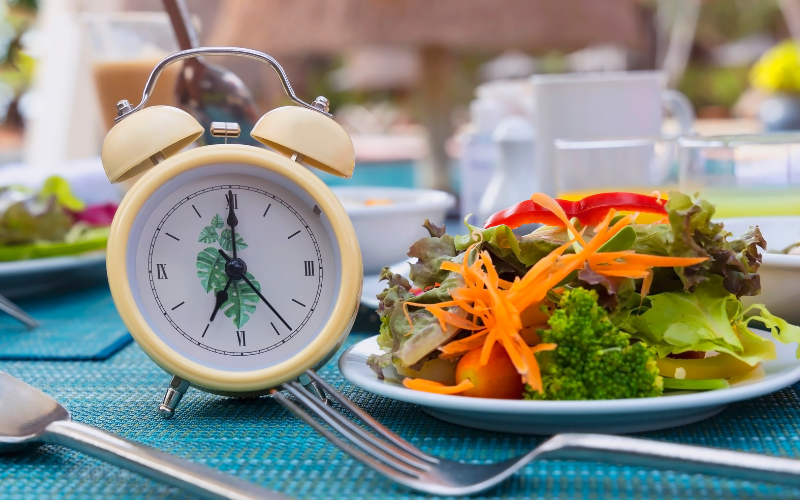
Liver cleansing according to Zencleanz
In 2024, we discovered a natural method for a deep cleanse of the liver and gallbladder with a blend of enzymes fermented in a cascade for 3 years. Aurélie and I both followed this extraordinary and innovative protocol, we talk about it on our store (NB: this product is currently being imported into Europe and is in the process of approval, but it is possible to order it directly from Taiwan through our partner ZENCLEANZ - and benefit from a 5% discount by entering the code BIOVIE in your cart).
In winter 2024, we went to Bali to meet the founder of the company that developed these enzymes, and we spent three weeks with him to truly understand his approach. Here is one of the interviews we conducted with him:
Foods and Habits Beneficial for the Liver
In a quest to support liver function naturally, paying special attention to the foods we consume can make all the difference. Opting for raw and living foods is a key strategy to promote liver health. These natural foods are not only rich in essential nutrients, but they are also free from harmful substances that could burden the hepatic system. Moreover, maintaining adequate hydration is essential: consuming freshly cold-pressed juices offers good hydration while providing vitamins and minerals directly bioavailable to the body.
Superfoods for the Liver
Adopting a diet rich in superfoods can play a crucial role in supporting liver health. Among the most effective detoxifying foods, it is recommended to prioritize fresh foods, such as cruciferous vegetables like broccoli, cabbage, kale, and cauliflower, which stand out for their exceptional properties. These vegetables contain glucosinolates, compounds that help activate liver detoxification enzymes, thus facilitating the elimination of toxins from the body. In addition to their detoxifying benefits, these vegetables are also rich in vitamins A and C, which are essential for strengthening the immune system and promoting cell regeneration.
Lifestyle Habits for a Healthy Liver
Adopting healthy lifestyle habits is essential for maintaining a liver in top shape. Regular exercise is one of the pillars of good liver health. By stimulating blood circulation, physical activity helps the liver function efficiently, thus facilitating the elimination of toxins. Whether through walking, yoga, or other forms of moderate exercise, moving daily is beneficial for overall well-being and liver health in particular.
Stress management is another crucial aspect. Chronic stress can have a negative impact on the liver, increasing the production of certain hormones that strain this organ. Relaxation techniques such as meditation, deep breathing, heart coherence, or even the practice of mindfulness can reduce stress and, consequently, lighten the load on the liver. These soothing practices also help restore hormonal balance, crucial for the body's natural detoxification.
Finally, adopting a self-listening attitude is essential. Being attentive to the signals your body sends can help you adjust your habits to better support your liver. By gradually integrating these practices into your daily life, you will not only contribute to the health of your liver but also promote a more balanced and conscious lifestyle, in harmony with a philosophy of overall and sustainable well-being.
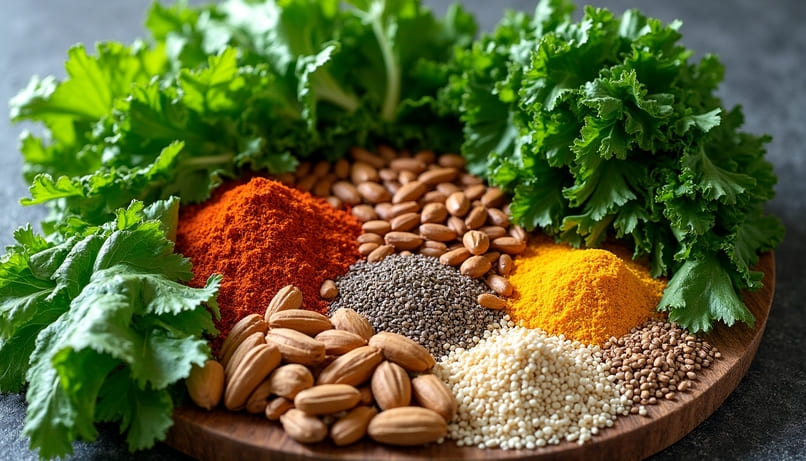
Precautions to Take
When considering a liver detox, it is crucial to take certain precautions to ensure a safe and beneficial approach. Although detoxification is often perceived as an effective method to purify the body, it carries risks, especially when practiced in an extreme manner. Before embarking on a detox, it is essential to consult a healthcare professional. They can assess your overall condition and advise you on the method best suited to your specific needs. This step is particularly important to avoid nutritional imbalances or adverse reactions, ensuring that detoxification does not become counterproductive to your health.
Extreme liver cleansing methods, such as those involving prolonged fasting or aggressive purges, can pose risks, especially if not supervised by a specialist. These practices can lead to electrolyte disturbances, dehydration, and other medical complications. Furthermore, since each individual is unique, it is crucial to adopt a personalized approach, taking into account medical history and current health conditions. For those with pre-existing medical conditions or taking regular medications, a prior medical consultation is essential to avoid potential interactions and exacerbations of symptoms.
Who Should Avoid Liver Detox?
Liver detox is not suitable for everyone, and there are specific groups for whom this practice is generally not recommended:
- People with Specific Medical Conditions: Those suffering from chronic illnesses such as diabetes, kidney diseases, or severe liver disorders should avoid liver detox without medical supervision. These conditions can be exacerbated by sudden dietary changes or aggressive detoxification practices.
- Pregnant or Breastfeeding Women: During pregnancy and breastfeeding, the body undergoes many changes and has specific nutritional needs. A liver detox, especially if it involves dietary restrictions or the use of laxatives, can harm the well-being of the mother and child.
Balanced and Progressive Approach
Adopting a progressive and balanced approach is essential to integrate healthy changes without disrupting your body's balance. Here are some tips:
- The Importance of a Smooth Transition to Healthier Habits: Instead of making radical changes, start by gradually incorporating live and organic foods into your diet. This allows your body to adjust to new practices without excessive stress.
- Listening to Your Body and Personalized Adjustments: Since each individual is unique, it is crucial to pay attention to your body's signals. If you experience unusual symptoms or discomfort, evaluate your practices and adjust them according to your personal needs. Consulting a healthcare professional for regular follow-up can also help optimize your well-being.
Adopting a gradual approach not only ensures safety and well-being but also guarantees that the changes you make are sustainable in the long term. By focusing on personalized adjustments and attentive listening to your body, you can not only support your liver's health but also improve your overall well-being. Ultimately, this balanced approach aligns with the principles of self-respect and sustainability, promoting optimal health in a holistic living framework.
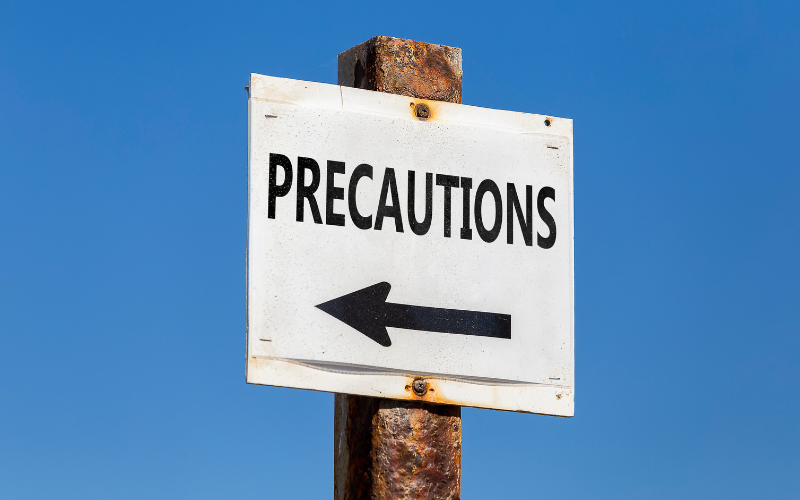
Conclusion
Supporting your liver's health naturally requires a balanced and thoughtful approach. Throughout this article, we have explored various methods and habits that can help maintain a healthy liver. By incorporating raw and organic foods into a varied and balanced diet, adopting stress management practices, and staying attentive to the needs of the human body, you can enhance liver function while respecting the principles of sustainability and overall well-being.
By adopting a holistic health philosophy, you can not only optimize your liver's functioning but also promote a healthier and more harmonious lifestyle. Remember that every small change counts and it is important to listen to your body throughout this process. For those who wish to deepen their knowledge and obtain practical advice on live food and natural health, feel free to subscribe to our newsletter. You will receive valuable information to support you in your journey towards a healthier lifestyle and environmentally friendly living.
Your Questions and Our Answers (FAQ)
What is a liver detox and why is it important?
Liver detox, or liver cleansing, aims to support and optimize liver function, which is essential for the body's natural detoxification. A healthy liver filters harmful substances, metabolizes nutrients, and produces the bile necessary for fat digestion. A detox can improve energy, digestion, and mental clarity, especially within the context of a live and organic diet.
What factors can overload the liver?
An unbalanced diet rich in processed foods, exposure to environmental toxins, and chronic stress can overload the liver. These factors lead to an accumulation of toxins and fats in the liver, compromising its functions. Adopting a balanced diet and reducing exposure to toxins can help alleviate this overload.
How does Andreas Moritz's liver cleansing method work?
Andreas Moritz's method involves consuming apple juice, Epsom salts, and olive oil to stimulate the liver and gallbladder, promoting the elimination of toxins. However, it is controversial as it can lead to electrolyte imbalances and gastrointestinal side effects. It is recommended to consult a healthcare professional before undertaking it.
Are there gentler alternatives for liver cleansing?
Yes, gentler alternatives include intermittent fasting, which allows the liver to regenerate, and the consumption of superfoods like milk thistle and turmeric. These methods support liver health naturally and without risks, in harmony with a living and organic diet.
What foods are beneficial for the liver?
Cruciferous vegetables like broccoli, kale, and cauliflower, as well as herbs and spices like turmeric and milk thistle, are beneficial for the liver. They contain compounds that help activate detoxification enzymes and reduce liver inflammation.
What precautions should be taken before starting a liver detox?
Before starting a liver detox, consult a healthcare professional to assess your overall condition. Avoid extreme or unsupervised methods, especially if you have specific medical conditions or are pregnant. Adopt a gradual approach and listen to your body's signals to adjust your practices.



